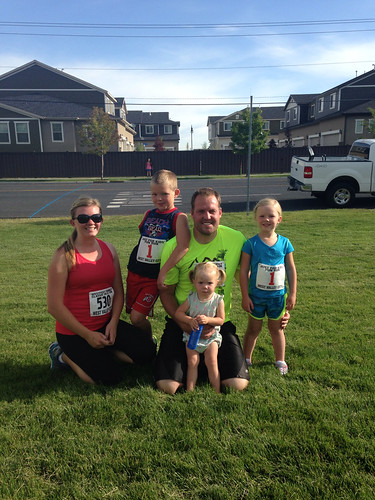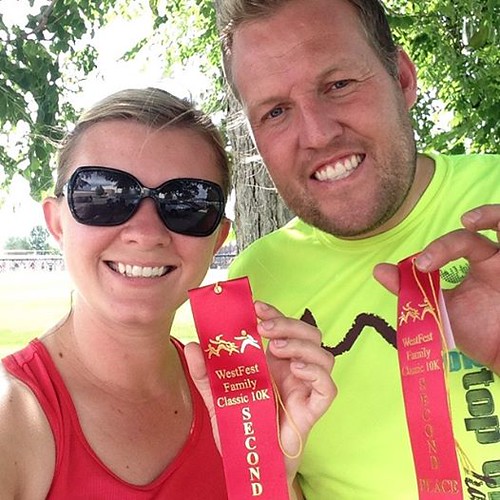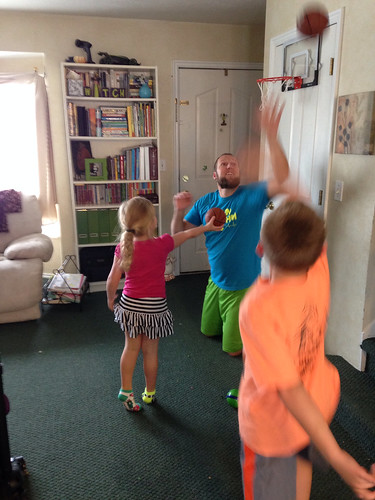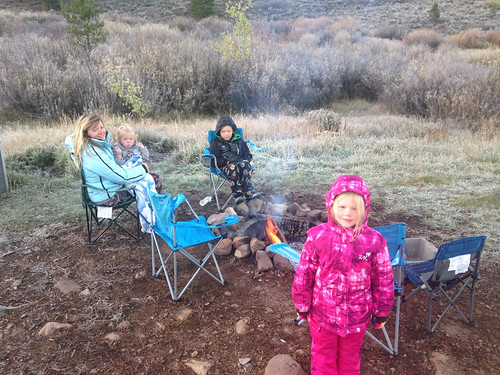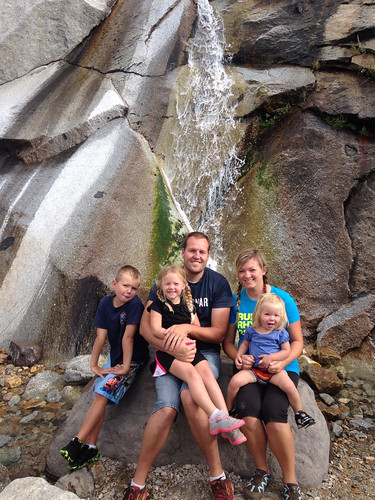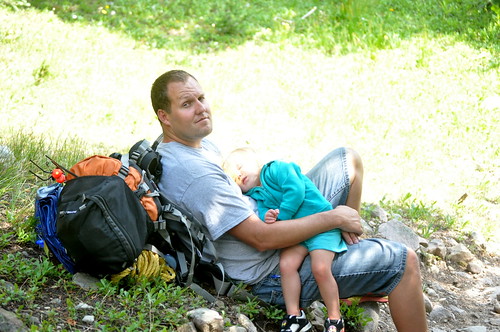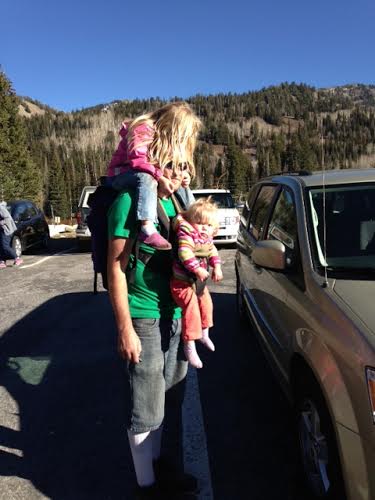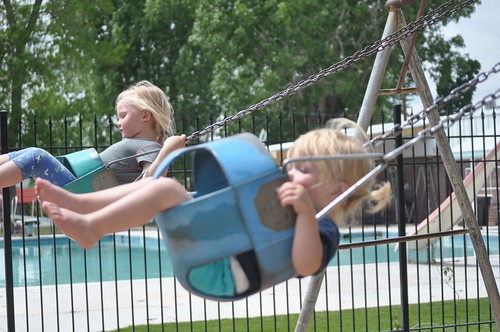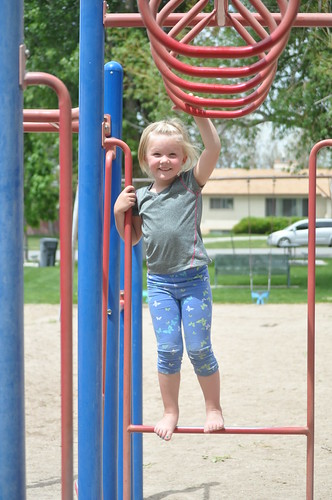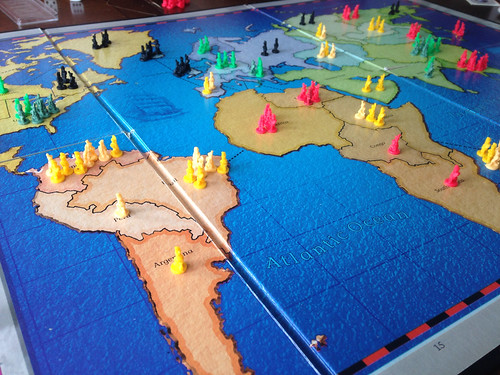I jumped into this project assuming that most of my blog readers will probably skip over these posts, and that anyone who actually reads them already has a basic understanding of the proclamation. I don't know if that assumption was correct or not, but either way, I won't be doing this project justice if I fail to explain what the proclamation is and why it is important to me.
Where The Family: A Proclamation to the World comes from
In the Church of Jesus Christ of Latter-Day Saints, we have a semi-annual general conference where our Church leaders give inspiring presentations on gospel-related topics. Along with the general conference, there is a session especially for the women of the Church. In September of 1995, our prophet at the time, President Gordon B. Hinckley, spoke at the women's session of conference and issued The Family: A Proclamation to the World. The proclamation was written by the prophet, his counselors, and the quorum of the twelve apostles.
What I believe about where the proclamation comes from
I believe that the proclamation was written under the direction of our Heavenly Father. I believe that the prophet, his counselors, and the apostles have been called to represent God on this earth, and therefore, they are able to receive specific revelation directly from Him.
The purpose of the proclamation and who it's directed to
When President Hinckley first read The Family: A Proclamation to the World, he stated, "With so much of sophistry that is passed off as truth, with so much of deception concerning standards and values, with so much of allurement and enticement to take on the slow stain of the world, we have felt to warn and forewarn."
The proclamation was intended to be a warning and a reminder of the role of family in God's plan. The truths outlined in the proclamation were not new, but our world had become (and continues to become) saturated with selfishness, permissive values, and irresponsibility. Marriages and families have become more disposable over time, and the prophet saw a need to remind the entire world - all faiths and all nations - of the importance and value of families.
What the proclamation teaches
In studying the proclamation this semester, I've discovered how truly infinite its teachings are. There is so much inspiration to draw from it, and the depth of its teachings go far beyond the text. The more I ponder the proclamation, the more I learn. Many people mistake it as an anti-gay document. Indeed, the proclamation teaches that "marriage between a man and a woman is ordained of God," but if that is the only thing you take away from the proclamation, you have missed out on a lot of great content.
Here are a few teachings of the proclamation that I think most of us can agree on or hope for:
- We are all spirit sons and daughters of heavenly parents.
- God loves us and created us in His image.
- Families can be together in the eternities.
- Parents have a sacred duty to love and take care of their children.
- Fathers and mothers should help each other as equal partners.
- Parents who abuse their children will be accountable to God.
- Extended family members should help and support each other.
How I gained my testimony of the proclamation
My story of how I gained a conviction of the teachings of the proclamation is quite lengthy, so you will only get the smallest part of my experience here.
Several years ago I had a dream that prepared me to go through a process of determining whether I believed in the proclamation. I don't usually claim that my dreams have meaning or purpose, but this one did. I won't go into the particulars because they are somewhat sacred to me, but when I had the dream, I didn't yet feel any pressure from the outside world to question the proclamation. That pressure came later, and I was prepared for it.
Working on my degree in marriage and family has given me the opportunity to study a lot of secular research on topics such as divorce, abuse, nurturing children, dating, sexuality, etc, and the things I have learned support my belief in the proclamation.
During the summer of this year, I felt inspired to memorize the proclamation. It has been a lengthy process, and I am only about half-way done, but I intend to finish by Christmas. As I've worked on memorizing the proclamation, I have had an affirmation over and over that it is true, and it is beautiful!
My final thoughts
Family life does not come easy to me. This is part of why I am so passionate about the topic. I feel like I have so much to learn and so much to change about myself as a wife, mother, sister, and daughter. In many ways, I feel unworthy to be part of God's great family, and yet, at the same time, I have this underlying knowledge that I can't deny: I am His daughter. I often have the experience spoken of in the hymn "O My Father" that says:
For a wise and glorious purpose
Thou hast placed me here on earth
And withheld the recollection
Of my former friends and birth;
Yet ofttimes a secret something
Whispered, "You're a stranger here,"
And I felt that I had wandered
From a more exalted sphere.
I think there are many things we do not yet understand about family, and the family - as in God's family that includes all of us as His children - but I look forward to gaining that knowledge in the eternities.
I have very much enjoyed working on this proclamation project, and I have gained a lot of great personal insights as I have written about family.
-----------------------------------------------------------------
This post was inspired by "The Proclamation: A Guide, a Banner, and a Doctrinal Summary of the Church's Emphasis on the Family," by Lloyd D. Newell, published in Successful Marriages and Families: Proclamation Principles and Research Perspectives, 2012. This piece of writing is part of my Family Proclamation project for FAML 100 at Brigham Young University Idaho.


